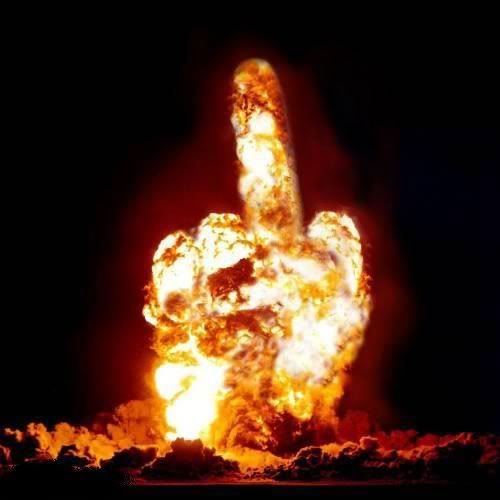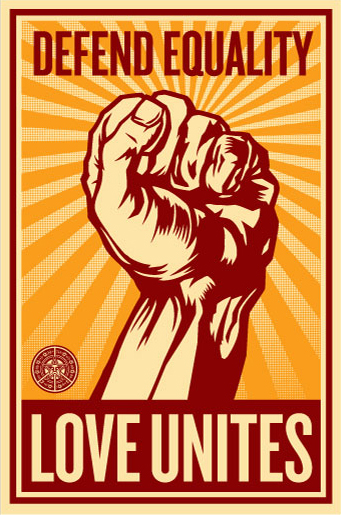
This blog post contains three sets of information for you.
1. A commentary by the Editor of OIA! on terrorism
3. An article on the *bomb blasts and shootings* that happened in Mumbai, India this week. *Click here* to link to the news report on this as published in the New York Times.
OIA! Editor commentary:
So, on November 26 (yesterday) there was a[nother] major terrorist attack in India, in which foreigners--particular Brits and Americans--were targeted. There are still hostages being held right now as this is written. Please send out some positive thoughts, energy, and prayers to those people!!
Terrorism in India seems to occur in revenge for *Hindu violence against and oppression of Muslims*.
Terrorism makes sense but also makes no sense at all.
Terrorism as a tactic makes sense in that if you have a group of people that is soaked in fear and hatred (for whatever reason), and/or is consistently repressed, hated, and marginalized, certain people within that group will use lashing out through violence as a way to combat the hatred that is directed toward them by others.
However, terrorism makes no sense at all, because acts of violence perpetuate the cycle of hatred in a GRAND way. There are SO many other ways to make change happen.
Humans are SUCH powerful beings.
Imagine this....people feel powerless, so to feel power, which they believe comes from making others suffer as they (and their people have), they hide behind weapons, and they create and feed off of deep wells of hatred and negative energy in their hearts, which explode out through their hands, through their weapons and become directed at the destruction of other human beings.
If that power and energy was instead wielded through peaceful activism, change could be made in JUST as grand of a way. This has been the essential message of major leaders of change throughout history.
It is reprehensible that parts of India and certain political groups in India are themselves responsible for committing *large-scale hate crimes* against the Muslim community. This is especially sad considering the *long-term historical context of this intolerance*.
Yet at the end of the day, VIOLENCE WILL NEVER BE THE ANSWER!!!! How can hate ever possibly solve anything?
A Colleague of the Editor of OIA! also made several central points about how completely ineffective terrorism is as a tactic for....whatever the purpose of terrorism is....revenge maybe? Does anyone have an answer to this?
The following discussion is about terrorism as a tactic in general, regardless of who you are ‘fighting’ on behalf of.
She made the point that firstly, if you are committing acts of violent terrorism, YOU DON'T KNOW WHO YOU ARE KILLING, WHAT THEIR VALUE IS, WHAT THEY DO.
You could be killing people who could change the entire world. They could be the very people who are fighting to change things for the better for your community, who could someday save the life of you or your child, they could be future allies of yours, or people working hard to make the world better for you and your loved ones.
An example of a beautiful person who worked hard to make the world a better place and was killed during a terrorist attack is Sergio Vieira de Mello. *Click here* to read about this man.
If terrorism is a mechanism to accomplish a certain set of goals--getting attention for issues facing your community, getting revenge against those who commit crimes against you and your community, etc--at some point you have to realize that you have a set of goals that you want to accomplish. However, terrorism is a dead end job, because it will never pay off. Things won't get any better through this kind of violence, they will only get worse, and make things worse for your community. When you are violent, it brings attention to you. When you commit violence in the name of a group or a cause, and use violence and fearmongering to push a particular agenda that you claim is in your group’s best interest, you use innocent people as a pawns in your own game of violence that you set the rules for without really taking the repercussions of your actions on your own community into consideration.
Finally, terrorism does not target the root of the problems facing a community. If you are bombing, killing, and terrorizing families, farmers, children, just regular people in the community, then the people who are responsible for committing crimes against your community in the first place will always get away scott free.
This does NOT mean that the original perpetrators of virulent strains of thought should instead be targeted for murder. Killing these leaders is also not the answer, because you can kill a person, but not a thought process. If the thought processes driving oppression survive because terrorism continues, then the cycle of oppression and terrorism will NEVER STOP, and 10, 15, 348 years from now, you will still be fighting and killing - forever entrenched in the same pointless war - which is exactly the case in India, and between the Hindu/Muslim, Muslim/Christian, Jewish/Muslim conflicts. People are killing their own brothers and sisters!!!



At Least 100 Dead in India Terror Attacks

Police watched the Taj Mahal Hotel, set ablaze by terrorists, in Mumbai on Thursday. More Photos >
MUMBAI, India — Coordinated terrorist attacks struck the heart of Mumbai, India’s commercial capital, on Wednesday night, killing dozens in machine-gun and grenade assaults on at least two five-star hotels, the city’s largest train station, a Jewish center, a movie theater and a hospital.
Readers' Comments
Share your thoughts.
Even by the standards of terrorism in India, which has suffered a rising number of attacks this year, the assaults were particularly brazen in scale and execution. The attackers used boats to reach the urban peninsula where they hit, and their targets were sites popular with tourists.
The Mumbai police said Thursday that the attacks killed at least 101 people and wounded at least 250. Guests who had escaped the hotels told television stations that the attackers were taking hostages, singling out Americans and Britons.
A previously unknown group claimed responsibility, though that claim could not be confirmed. It remained unclear whether there was any link to outside terrorist groups.
Gunfire and explosions rang out into the morning.
Hours after the assaults began, the landmark Taj Mahal Palace & Tower Hotel, next to the famed waterfront monument the Gateway of India, was in flames.
Guests banged on the windows of the upper floors as firefighters worked to rescue them.
Fire also raged inside the luxurious Oberoi Hotel, according to the police. A militant hidden in the Oberoi told India TV on Thursday morning that seven attackers were holding hostages there.
“We want all mujahedeen held in India released, and only after that we will release the people,” he said.Some guests, including two members of the European Parliament who were visiting as part of a trade delegation, remained in hiding in the hotels, making desperate cellphone calls, some of them to television stations, describing their ordeal.
Alex Chamberlain, a British citizen who was dining at the Oberoi, told Sky News television that a gunman had ushered 30 or 40 people from the restaurant into a stairway and, speaking in Hindi or Urdu, ordered them to put up their hands.
“They were talking about British and Americans specifically,” he said. “There was an Italian guy, who, you know, they said, ‘Where are you from?’ and he said he’s from Italy, and they said, ‘Fine,’ and they left him alone.”
Sajjad Karim, 38, a British member of the European Parliament, told Sky News: “A gunman just stood there spraying bullets around, right next to me.”
Before his phone went dead, Mr. Karim added: “I managed to turn away and I ran into the hotel kitchen and then we were shunted into a restaurant in the basement. We are now in the dark in this room, and we have barricaded all the doors. It’s really bad.”
Attackers had also entered Cama and Albless Hospital, according to Indian television reports, and struck Nariman House, which is home to the city’s Chabad-Lubavitch center.
A spokesman for the Lubavitch movement in New York, Rabbi Zalman Shmotkin, told the Associated Press that attackers “stormed the Chabad house” in Mumbai.
Israel’s Foreign Ministry said it was trying to locate an unspecified number of Israelis missing in Mumbai, according to Haaretz.com, the Web site of an Israeli newspaper.
Several high-ranking law enforcement officials, including the chief of the antiterrorism squad and a commissioner of police, were reported killed.
The military was quickly called in to assist the police.
Hospitals in Mumbai, a city of more than 12 million that was formerly called Bombay, have appealed for blood donations. As a sense of crisis gripped much of the city, schools, colleges and the stock exchange were closed Thursday.
Vilasrao Deshmukh, the chief minister for Maharashtra State, where Mumbai is, told theCNN-IBN station that the attacks hit five to seven targets, concentrated in the southern tip of the city, known as Colaba and Nariman Point. But even hours after the attacks began, the full scope of the assaults was unclear.
Unlike previous attacks in India this year, which consisted of anonymously planted bombs, the assailants on Wednesday night were spectacularly well-armed and very confrontational. In some cases, said the state’s highest-ranking police official, A. N. Roy, the attackers opened fire and disappeared.
Indian officials said the police had killed six of the suspected attackers and captured nine.
A group calling itself the Deccan Mujahedeen said it had carried out the attacks. It was not known who the group is or whether the claim was real.
Around midnight, more than two hours after the series of attacks began, television images from near the historic Metro Cinema showed journalists and bystanders ducking for cover as gunshots rang out. The charred shell of a car lay in front of Chhatrapati Shivaji Terminus, formerly Victoria Terminus, the mammoth railway station. A nearby gas station was blown up.
The landmark Leopold Café, a favorite tourist spot, was also hit.
Reached by phone, some guests who had been trapped in the Taj said about 1 a.m. that they had heard an explosion and gunfire in the old wing of the hotel.
A 31-year-old man who was in the Taj attending a friend’s wedding reception said he was getting a drink around 9:45 p.m. when he heard something like firecrackers — “loud bursts” interspersed with what sounded like machine-gun fire.
A window of the banquet hall shattered, and guests scattered under tables and were quickly escorted to another room, he said. No one was allowed to leave.
Just before 1 a.m., another loud explosion rang out, and then another about a half-hour later, the man said.
At 6 a.m., he said that when the guests tried to leave the room early Thursday, gunmen opened fire. One person was shot.
The man’s friend, the groom, was two floors above, in the old wing of the hotel, trapped in a room with his bride. One explosion, he said, took the door off its hinges. He blocked it with a table.
Then came another blast, and gunfire rang out throughout the night. He did not want to be identified, for fear of being tracked down.
Rakesh Patel, a British businessman who escaped the Taj, told a television station that two young men armed with a rifle and a machine gun took 15 hostages, forcing them to the roof.
The gunmen, dressed in jeans and T-shirts, “were saying they wanted anyone with British or American passports,” Mr. Patel said.
He and four others managed to slip away in the confusion and smoke of the upper floors, he said. He said he did not know the fate of the remaining hostages.
Clarence Rich Diffenderffer, of Wilmington, Del., said after dinner at the hotel he headed to the business center on the fifth floor.
“A man in a hood with an AK-47 came running down the hall,” shooting and throwing four grenades, Mr. Diffenderffer said. “I, needless to say, beat it back to my room and locked it, and double-locked it, and put the bureau up against the door.”
Mr. Diffenderffer said he was rescued hours later, at 6:30 a.m., by a cherrypicker.
Among those apparently trapped at the Oberoi were executives and board members of Hindustan Unilever, part of the multinational corporate giant, The Times of India reported.
Indian military forces arrived outside the Oberoi at 2 a.m., and some 100 officers from the central government’s Rapid Action Force, an elite police unit, entered later.
CNN-IBN reported the sounds of gunfire from the hotel just after the police contingent went in.
The Bush administration condemned the attacks, as did President-elect Barack Obama’s transition team. The White House said it was still “assessing the hostage situation.”


















No comments:
Post a Comment